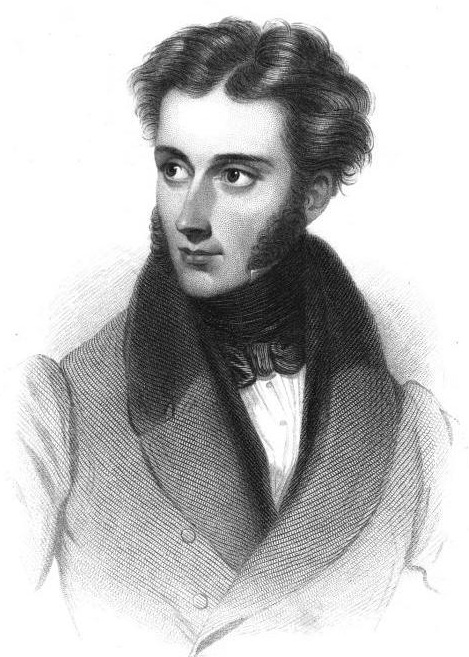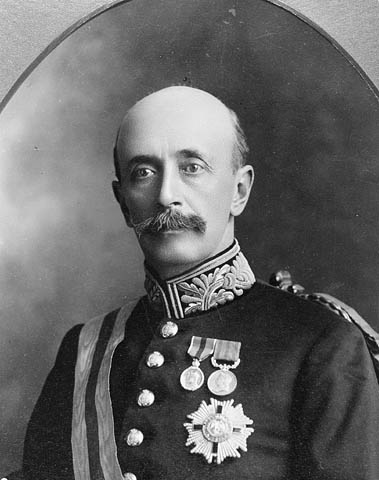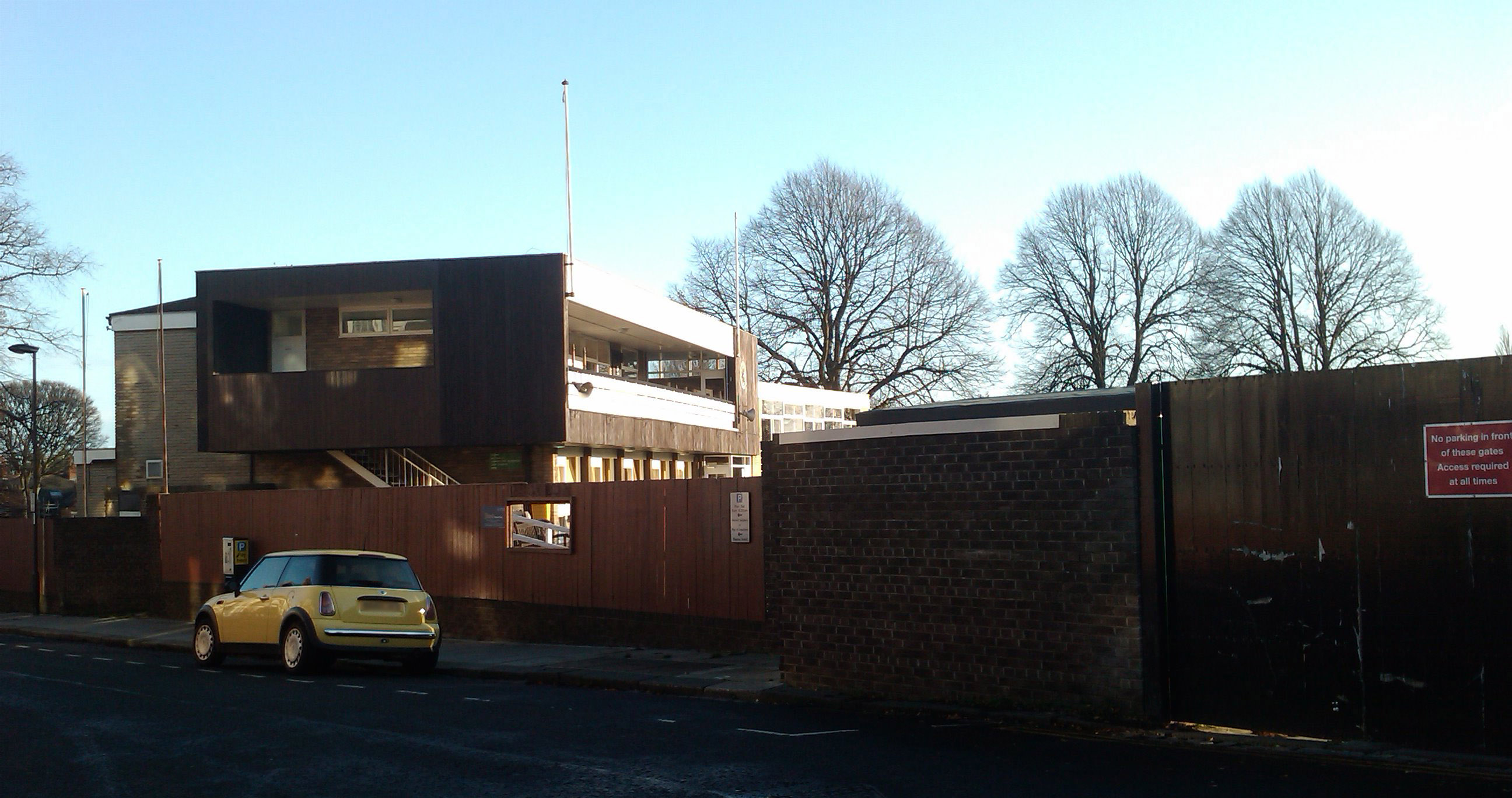|
Alfred Cochrane
Alfred Henry John Cochrane (26 January 1865 – 14 December 1948) was an English cricketer who played first-class cricket for Derbyshire between 1884 and 1886, and for Oxford University between 1885 and 1888. He subsequently made his name as a writer on sporting subjects and of light verse. Cochrane was the second son of Rev. David Crawford Cochrane, Master of Etwall Hospital (almshouses) and his wife Jane Tomlinson. He was born Moka, Mauritius where his father was at the time Chaplain to the Bishop. He was educated at Repton School and made his debut for Derbyshire in the 1884 season in August against Lancashire, when he took 6 for 51. He played two more matches for Derbyshire during the season. He also played football for Derby County in 1884 in its pre-league days. Cochrane went on to Hertford College, Oxford and played cricket more regularly for University over the next four years, taking part three times in the Varsity match. He played two matches for Derbysh ... [...More Info...] [...Related Items...] OR: [Wikipedia] [Google] [Baidu] |
Moka
Moka () is a village in Mauritius located in the Moka District, the western part of the village also lies in the Plaines Wilhems District. Since 1967 it forms part of Constituency No. 8 Quartier Militaire and Moka. The village is administered by the Moka Village Council under the aegis of the Moka District Council. According to the census made by Statistics Mauritius in 2011, the population was at 8,846. The elevation is 203 meters and can be up to 425 meters in some places. Moka is directly on the other side of the Moka Range from Port Louis. The village is close to the mountain Le Pouce and the town Beau-Bassin Rose-Hill. Réduit is a suburb of the village where the State House and University of Mauritius is situated. The village is also home to the Mauritius Broadcasting Corporation and the Mahatma Gandhi Institute. History Housing boom Moka is centrally located in Mauritius and as such has experienced a real estate development boom in the past few years. This was mainly enco ... [...More Info...] [...Related Items...] OR: [Wikipedia] [Google] [Baidu] |
Derby County F
Derby ( ) is a city and unitary authority area in Derbyshire, England. It lies on the banks of the River Derwent in the south of Derbyshire, which is in the East Midlands Region. It was traditionally the county town of Derbyshire. Derby gained city status in 1977, the population size has increased by 5.1%, from around 248,800 in 2011 to 261,400 in 2021. Derby was settled by Romans, who established the town of Derventio, later captured by the Anglo-Saxons, and later still by the Vikings, who made their town of one of the Five Boroughs of the Danelaw. Initially a market town, Derby grew rapidly in the industrial era. Home to Lombe's Mill, an early British factory, Derby has a claim to be one of the birthplaces of the Industrial Revolution. It contains the southern part of the Derwent Valley Mills World Heritage Site. With the arrival of the railways in the 19th century, Derby became a centre of the British rail industry. Derby is a centre for advanced transport manufactur ... [...More Info...] [...Related Items...] OR: [Wikipedia] [Google] [Baidu] |
Arthur Cochrane (officer Of Arms)
Arthur Cochrane may refer to: * Sir Arthur Cochrane (Royal Navy officer) Admiral Sir Arthur Auckland Leopold Pedro Cochrane, (24 September 1824 – 20 August 1905) was a Royal Navy officer who served as Commander-in-Chief, Pacific Station. Naval career Born the third son of the tenth Earl of Dundonald, Cochrane ... (1824–1905), British admiral * Sir Arthur Cochrane (officer of arms) (1872–1954), British officer of arms * Arthur Ormiston Cochrane (1879–1926), Canadian politician {{hndis, Cochrane, Arthur ... [...More Info...] [...Related Items...] OR: [Wikipedia] [Google] [Baidu] |
Sir Andrew Noble, 1st Baronet
Sir Andrew Noble, 1st Baronet (13 September 1831 – 22 October 1915) was a Scottish physicist noted for his work on ballistics and gunnery. Early life Born at Greenock, he was educated at Edinburgh Academy and at the Royal Military Academy, Woolwich. He was commissioned in the Royal Artillery in 1849, promoted captain in 1855 and became secretary of the Royal Artillery Institution. He was secretary of the British government select committee on the replacement of smooth-bore cannon with rifled artillery and carried out research on the subject. In 1859 he became Assistant-Inspector of Artillery and in 1860 a member of the Ordnance Select Committee and of the Committee on Explosives, remaining on the committee until it was dissolved in 1880. Notable work In 1860 he joined Armstrong's armaments works in Elswick, Newcastle-upon-Tyne, first as joint manager and, from 1861, as a partner, where he continued research into artillery, in particular inventing ways of measuring bre ... [...More Info...] [...Related Items...] OR: [Wikipedia] [Google] [Baidu] |
The Times
''The Times'' is a British daily national newspaper based in London. It began in 1785 under the title ''The Daily Universal Register'', adopting its current name on 1 January 1788. ''The Times'' and its sister paper ''The Sunday Times'' (founded in 1821) are published by Times Newspapers, since 1981 a subsidiary of News UK, in turn wholly owned by News Corp. ''The Times'' and ''The Sunday Times'', which do not share editorial staff, were founded independently and have only had common ownership since 1966. In general, the political position of ''The Times'' is considered to be centre-right. ''The Times'' is the first newspaper to have borne that name, lending it to numerous other papers around the world, such as ''The Times of India'', ''The New York Times'', and more recently, digital-first publications such as TheTimesBlog.com (Since 2017). In countries where these other titles are popular, the newspaper is often referred to as , or as , although the newspaper is of nationa ... [...More Info...] [...Related Items...] OR: [Wikipedia] [Google] [Baidu] |
Winthrop Mackworth Praed
Winthrop Mackworth Praed (28 July 180215 July 1839)—typically written as W. Mackworth Praed—was an English politician and poet. Life Early life Praed was born in London, United Kingdom. The family name of Praed was derived from the marriage of the poet's great-grandfather to a Cornish heiress. Winthrop's father, William Mackworth Praed, was a serjeant-at-law (1756–1835) and revising barrister for Bath. His mother belonged to the English branch of the New England family of Winthrop. In 1814 Praed was sent to Eton College, where he founded a manuscript periodical called ''Apis matina''. This was succeeded in October 1820 by the ''Etonian'', a paper projected and edited by Praed and Walter Blount, which appeared every month until July 1821, when the chief editor, who signed his contributions "Peregrine Courtenay," left Eton, and the paper died. Henry Nelson Coleridge, William Sidney Walker, and John Moultrie were the three best known of his collaborators on this peri ... [...More Info...] [...Related Items...] OR: [Wikipedia] [Google] [Baidu] |
James Kenneth Stephen
James Kenneth Stephen (25 February 1859 – 3 February 1892) was an English poet, and tutor to Prince Albert Victor, eldest son of Albert Edward, Prince of Wales. Early life James Kenneth Stephen was the second son of Sir James Fitzjames Stephen, barrister-at-law, and his wife Mary Richenda Cunningham. Known as 'Jem' among his family and close friends, he was first cousin to Virginia Woolf (née Stephen), and shared with his cousin symptoms of bipolar disorder that would afflict him increasingly in later life. As a youth attending Eton College as a King's Scholar, Stephen's prodigious size and physical strength helped him prove himself an outstanding player of the Eton Wall Game, representing the Collegers (King's Scholars) on St. Andrew's Day from 1874 to 1877 and leading the team to victory as Keeper of the College Wall in his final two years. He has been commemorated in a toast raised by College Wall on the eve of St Andrew's Day every year for over a century: "''In ... [...More Info...] [...Related Items...] OR: [Wikipedia] [Google] [Baidu] |
River Tyne
The River Tyne is a river in North East England. Its length (excluding tributaries) is . It is formed by the North Tyne and the South Tyne, which converge at Warden Rock near Hexham in Northumberland at a place dubbed 'The Meeting of the Waters'. The Tyne Rivers Trust measure the whole Tyne catchment as , containing of waterways. Course North Tyne The North Tyne rises on the Scottish border, north of Kielder Water. It flows through Kielder Forest, and in and out of the border. It then passes through the village of Bellingham before reaching Hexham. South Tyne The South Tyne rises on Alston Moor, Cumbria and flows through the towns of Haltwhistle and Haydon Bridge, in a valley often called the Tyne Gap. Hadrian's Wall lies to the north of the Tyne Gap. Coincidentally, the source of the South Tyne is very close to those of the Tees and the Wear. The South Tyne Valley falls within the North Pennines Area of Outstanding Natural Beauty (AONB) – the second largest of the ... [...More Info...] [...Related Items...] OR: [Wikipedia] [Google] [Baidu] |
Tyneside (UK Parliament Constituency)
Tyneside was a parliamentary constituency in the Tyneside area of north-east England, which returned one Member of Parliament (MP) to the House of Commons of the Parliament of the United Kingdom, elected by the first-past-the-post voting system. The constituency was created by the Redistribution of Seats Act 1885 for the 1885 general election as one of four single-member Divisions of the county of Northumberland, and abolished for the 1918 general election. Boundaries The contents of the county division, as defined by the Redistribution of Seats Act 1885, were:The Sessional Division of Castle West (part), the Municipal Boroughs of Newcastle-upon-Tyne, and Tynemouth, and the Parish of Wallsend.NB included non-resident freeholders in the parliamentary boroughs of Newcastle upon Tyne and Tynemouth. Abolition On abolition in 1918, the contents of the seat were distributed as follows: * the majority of the electorate, comprising the municipal borough of Wallsend and the urban ... [...More Info...] [...Related Items...] OR: [Wikipedia] [Google] [Baidu] |
January 1910 United Kingdom General Election
The January 1910 United Kingdom general election was held from 15 January to 10 February 1910. The government called the election in the midst of a constitutional crisis caused by the rejection of the People's Budget by the Conservative-dominated House of Lords, in order to get a mandate to pass the budget. The general election resulted in a hung parliament, with the Conservative Party led by Arthur Balfour and their Liberal Unionist allies receiving the most votes, but the Liberals led by H. H. Asquith winning the most seats, returning two more MPs than the Conservatives. Asquith's government remained in power with the support of the Irish Parliamentary Party, led by John Redmond. Another general election was soon held in December. The Labour Party, led by Arthur Henderson, returned 40 MPs. Much of this apparent increase (from the 29 Labour MPs elected in 1906) came from the defection, a few years earlier, of Lib Lab MPs from the Liberal Party to Labour. Results ... [...More Info...] [...Related Items...] OR: [Wikipedia] [Google] [Baidu] |
Northumberland County Cricket Club
Northumberland County Cricket Club is one of twenty minor county clubs within the domestic cricket structure of England and Wales. It represents the historic county of Northumberland. The team is currently a member of the Minor Counties Championship Eastern Division and plays in the MCCA Knockout Trophy. Northumberland played List A matches occasionally from 1971 until 2005 but is not classified as a List A team ''per se''. The club is based at Osborne Avenue, Jesmond and also plays matches around the county at Benwell Park and at the South Northumberland CC ground at Gosforth. Honours * Minor Counties Championship (0) - ; shared (0) - * MCCA Knockout Trophy (1) - 2006 Earliest cricket Cricket probably reached Northumberland during the 18th century. According to Bowen, the earliest reference to cricket in the county was in 1766. Origin of club A county organisation existed in 1834. The present Northumberland CCC was founded in December 1895 and joined the Minor Count ... [...More Info...] [...Related Items...] OR: [Wikipedia] [Google] [Baidu] |
Armstrong Whitworth
Sir W G Armstrong Whitworth & Co Ltd was a major British manufacturing company of the early years of the 20th century. With headquarters in Elswick, Newcastle upon Tyne, Armstrong Whitworth built armaments, ships, locomotives, automobiles and aircraft. The company was founded by William Armstrong in 1847, becoming Armstrong Mitchell and then Armstrong Whitworth through mergers. In 1927, it merged with Vickers Limited to form Vickers-Armstrongs, with its automobile and aircraft interests purchased by J D Siddeley. History In 1847, the engineer William George Armstrong founded the Elswick works at Newcastle, to produce hydraulic machinery, cranes and bridges, soon to be followed by artillery, notably the Armstrong breech-loading gun, with which the British Army was re-equipped after the Crimean War. In 1882, it merged with the shipbuilding firm of Charles Mitchell to form Armstrong Mitchell & Company and at the time its works extended for over a mile (about 2 km) along th ... [...More Info...] [...Related Items...] OR: [Wikipedia] [Google] [Baidu] |







.jpg)

.jpg)